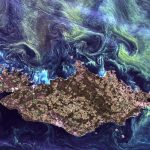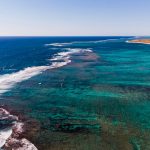 February 25, 2020 3:12 pm
Published by Climate Extremes
February 25, 2020 3:12 pm
Published by Climate Extremes
This paper is a review article that stemmed from a debate within the Southern Ocean community. The paper explains how “fronts”, sharp boundaries between water masses, are defined, and what their effects might be on the biology of the Southern Ocean.
 February 13, 2020 12:09 pm
Published by Climate Extremes
February 13, 2020 12:09 pm
Published by Climate Extremes
Using a novel methodology applied to CMIP5 projections CLEX researchers found that the local temperatures experienced by 90% of people would be substantially higher in a transient (still warming) climate than an equilibrium climate where the temperatures have plateaued, for the same global temperature.
 February 12, 2020 2:19 pm
Published by Climate Extremes
February 12, 2020 2:19 pm
Published by Climate Extremes
This study looks at data-sharing issues and outlines the history of the rationale and use of indices, the types of indices that are frequently used and the advantages and pitfalls in analysing them.
 February 12, 2020 1:38 pm
Published by Climate Extremes
February 12, 2020 1:38 pm
Published by Climate Extremes
Research by CLEX scientists and colleagues re-examines some of the basic assumptions and interpretations in the theory. In particular, they show the SAM cannot be interpreted as a descriptor of mid-latitude variability and it has little imprint on the weather of the storm track.
 February 12, 2020 12:06 pm
Published by Climate Extremes
February 12, 2020 12:06 pm
Published by Climate Extremes
CLEX researchers evaluate the performance of satellite chlorophyll observations in the tropical Pacific Ocean and suggest algorithm improvements.
 February 12, 2020 11:20 am
Published by Climate Extremes
February 12, 2020 11:20 am
Published by Climate Extremes
This work describes a new cross-scale modelling framework for urban environments and applies it to calculate how electricity and gas demand will change under future climate change and air conditioner (AC) ownership scenarios.
 February 11, 2020 4:25 pm
Published by Climate Extremes
February 11, 2020 4:25 pm
Published by Climate Extremes
In this work, CLEX researchers compared the performance of three ocean simulations – with low, medium and high resolutions – when representing marine heatwaves.
 February 11, 2020 1:45 pm
Published by Climate Extremes
February 11, 2020 1:45 pm
Published by Climate Extremes
CLEX researchers evaluated an updated version of CABLE climate model within a WRF physics ensemble over the CORDEX AustralAsia domain. Results were strongly dependent on the region of interest.
 February 11, 2020 11:39 am
Published by Climate Extremes
February 11, 2020 11:39 am
Published by Climate Extremes
CLEX researchers found that regions where there is a larger drying trend tend to be more sensitive to land water availability and have more heatwave days. They found that the effect of dry soils before a heatwave varies considerably across Australia.
 February 11, 2020 10:43 am
Published by Climate Extremes
February 11, 2020 10:43 am
Published by Climate Extremes
Climate models project that all circulation features of the South Indian Ocean, including the Leeuwin Current and Undercurrent, North and South East Madagascar Currents, transport through the Mozambique Channel and Agulhas Current are projected to weaken significantly in the last half of the 21st century with unchecked greenhouse gas emissions.










